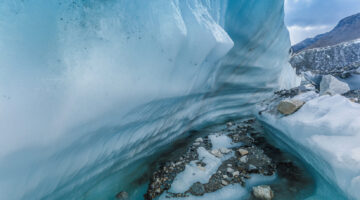Speaking in Maine airs Mayewski’s ‘Arctic Climate Change and Maine’ talk
Maine Public’s Speaking in Maine is sharing Paul Mayewski’s address titled “Arctic Climate Change and Maine” in December to the Mid-Coast Forum on Foreign Relations in in Camden. Mayewski, director of the University of Maine Climate Change Institute, recently led National Geographic and Rolex’s Perpetual Planet Extreme Expedition to Mount Everest. The world-renowned climate scientist […]
Read more


